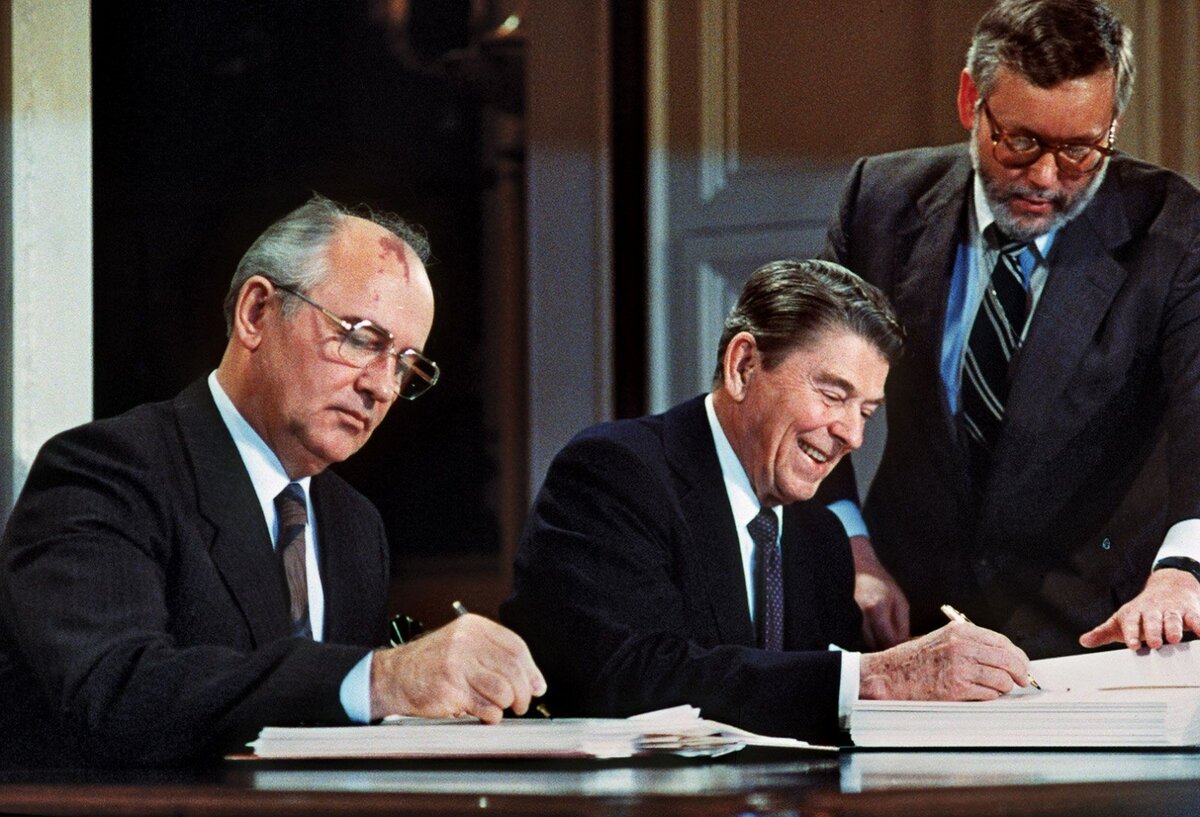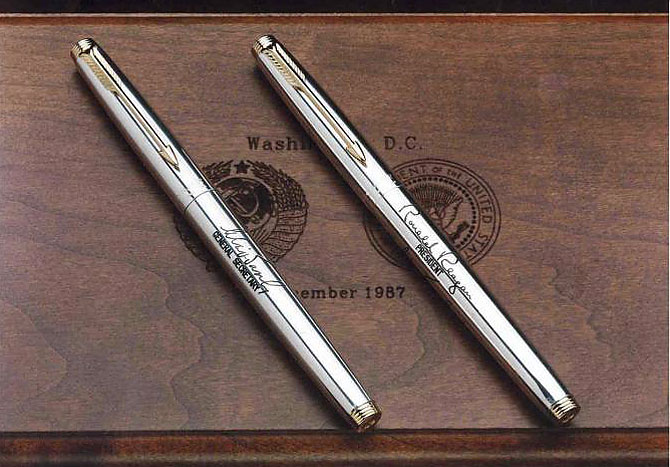

38 years ago, in the capital of Iceland, Gorbachev and Reagan had their second personal meeting. It almost ended with an agreement on the complete elimination of nuclear missile weapons of the USSR and the USA.

Fortunately for us, at the last moment, the advisers of the then head of the White House persuaded him to reject Mikhail Sergeyevich’s offer.
As part of a large group of Russian journalists, I covered that summit and I will remember for the rest of my life the scene of the farewell of the leaders of the two superpowers.
Gorbachev tried to convince his counterpart to change his mind until the very end, and Reagan listened silently with a gloomy look, then shook his head, got into the limousine and drove away.
Before flying to Washington, instead of holding a press conference, Reagan addressed the staff of the US Naval Air Station in Keflavik. To the approving whistles of his fellow citizens in uniform, he declared that he had shown toughness at the summit and reaffirmed his commitment to the “star wars” strategy he had put forward in March 1983.
For me, such an ending to the Reykjavik summit was not unexpected. The US policy that I covered in 1981-86, working as a Washington correspondent for Izvestia, gave no reason to doubt the Reagan administration’s desire to be guided exclusively by the principles of “pax americana” (“peace according to the American model”).
Nevertheless, the possibility of concluding the above-mentioned agreement had been confirmed to me the day before by Strobe Talbott, an employee of the weekly “Time” magazine, who was an acquaintance of mine from my Washington assignment.
The Reykjavik summit ended on Sunday evening, and “Time” was published on Mondays. In order to outflank their competitors, Time had already laid out a multi-page report in two versions: in case a bilateral agreement was reached, and in anticipation of its failure. The second version was published.
It is worth recalling: two years before the Icelandic summit and three months before Gorbachev’s ascension to the top of power in the USSR, he was given a viewing in London. After that, Margaret Thatcher said: “I liked him, you can do business with him.” At that time, this was received with delight everywhere, including here.
Over the years, however, the statement of the “iron lady”, a woman of unusual intelligence and insight, began to be associated with one trait of Gorbachev’s nature, which was revealed in the fall of 1991 by the prominent Soviet psychiatrist Aron Isaakovich Belkin. In “Soviet Culture”, he described Mikhail Sergeyevich as a pronounced narcissist, greedy for flattery.
Reagan skillfully took advantage of this, praising the “new thinking” proclaimed by Gorbachev. And in December 1987, at a new meeting with the head of the White House in Washington, Gorbachev signed an agreement on the elimination of intermediate- and shorter-range missiles, which, without informing the USSR Minister of Defense and the Chief of our General Staff, at the instigation of the then Foreign Minister Shevardnadze (he, in turn, was persuaded by US Secretary of State Shultz), included the Oka missile system. It did not fall under the terms of the INF Treaty, but caused serious concern in the Pentagon, since it served as a means of containing the aggressive aspirations of the Americans in Europe.
The developer of the Oka, Sergei Pavlovich, with the telling surname Nepobedimy (means Invincible in Russian), in his heart called this an act of betrayal. But Gorbachev could no longer be calmed, and he demonstrated “new thinking” time after time.
According to Washington journalist David Hoffman, it got to the point that in 1990 the first and last president of the USSR turned to George Bush Sr. with a desperate request to throw in some money to keep him, Gorbachev, in power. Reagan’s successor asked his closest advisers to speak out on this matter, and one of them, to general laughter, suggested: “Let’s hang the hoop higher – let Gorbachev jump some more…”
The dramatic result of the Reykjavik meeting was perceived by many as a tragedy: they say that humanity was only one step away from getting rid of the threat of a nuclear missile war. But now it is obvious: if our country were deprived of its nuclear missile arsenal, our “friends and partners” led by the United States would behave completely differently towards us today. Hence the title of this article and the phrase “Fortunately for us…“.






